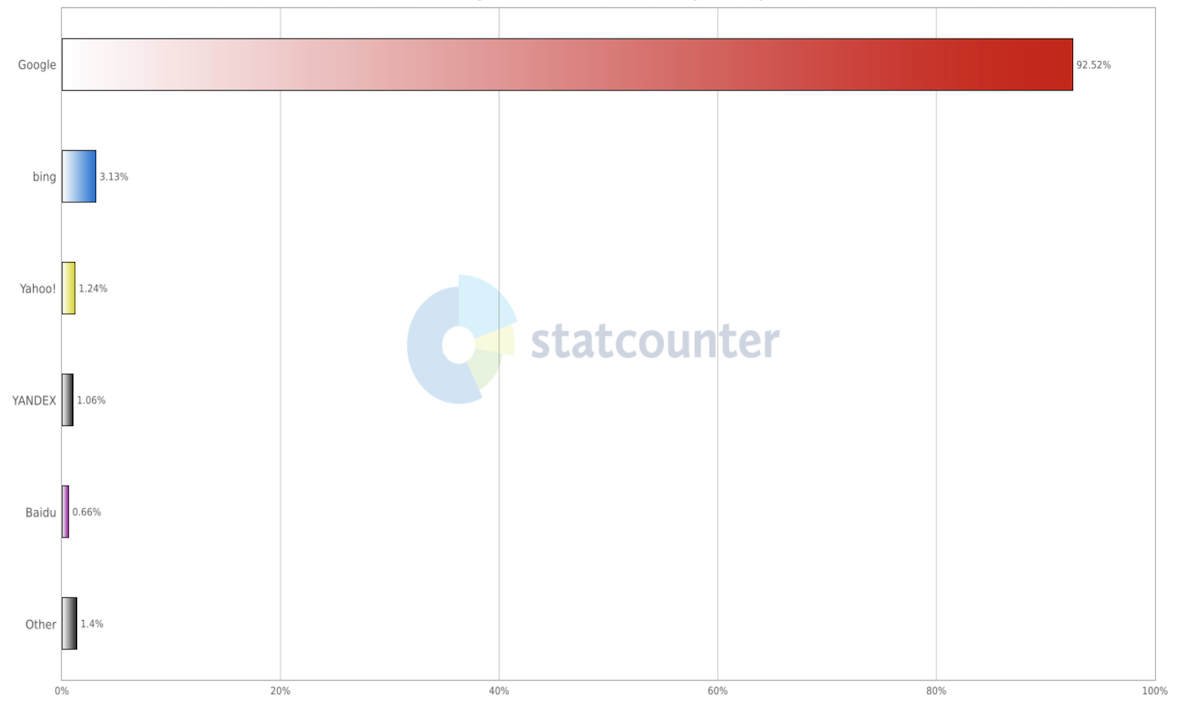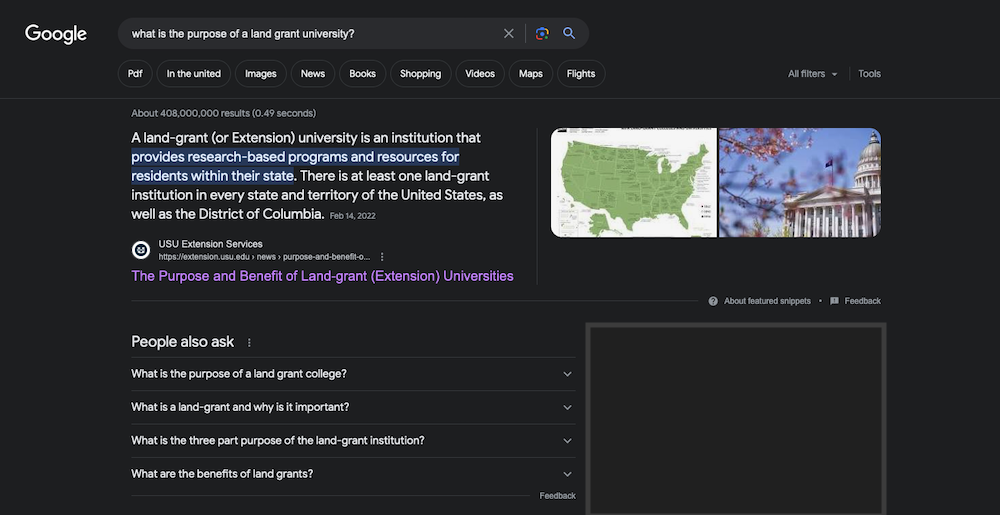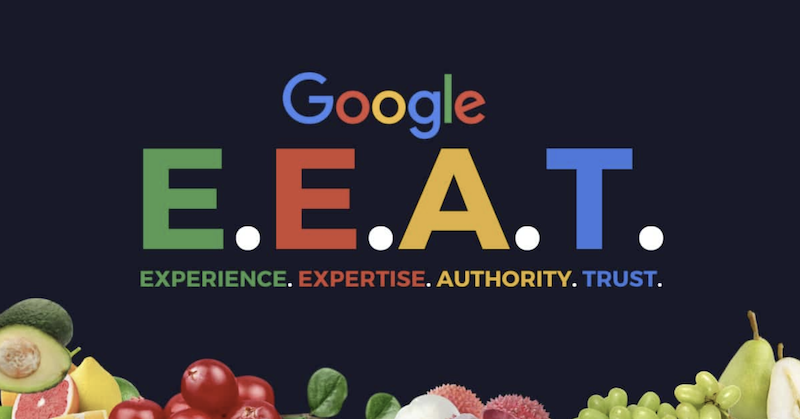3 Proven Steps to Boost Your Web Traffic With SEO

In today's digital landscape, the way people find answers to their questions has undergone a significant transformation. Gone are the days when calling a local Extension office or visiting a library were the primary means of obtaining information. Now, search engines like Google are at the forefront of our quest for knowledge.
With the rise of AI technologies like ChatGPT, the integration of Large Language Models into search engines is becoming more common. This shift hasn't reduced the use of search engines but has rather enhanced their capabilities.
Whether you're a researcher, content creator, or simply curious about increasing your web presence, understanding how to leverage search engines is crucial. This article will guide you through the essential steps to boost your web traffic organically.
How do I get more traffic to my website? The answer lies in these three simple steps:
- Uncover What People are Actually Searching for: Understand your audience's needs.
- Become a Trusted Authority on Your Topic Area: Build credibility and trust.
- Create Unique, Useful, & Well-Structured Content: Engage your readers with valuable content.
By following these steps, you can unlock the potential of organic Google traffic and amplify your research articles and web content.
Search Engine Statistics
As of 2023, approximately 5.06 billion people, or 64.4% of the world's population, use search engines. This staggering number highlights the global reliance on search engines for information.
Dominance in Web Traffic
Search engines are not just popular; they are essential. About 93% of all web traffic comes from search engines. This means that nearly all online journeys begin with a search query.
Google's Supremacy
Google alone processes more than 100,000 search queries per second, translating to more than 8.5 billion searches per day. Its dominance in the search engine market is unparalleled.

Frequency of Searches
People are not just using search engines; they are using them frequently. 77% of Google users search with Google three or more times per day. This constant use underscores the importance of understanding how search engines work.
Mobile Search Growth
With the proliferation of smartphones, mobile search has seen exponential growth. More than half of all searches are now conducted on mobile devices, emphasizing the need for mobile-friendly content.
Local Searches
Local searches, where users look for products or services near them, constitute a significant portion of all searches. This trend highlights the importance of local SEO for businesses and content creators.
Video Searches
Platforms like YouTube have made video content a vital part of the search landscape. Video searches are growing, and incorporating video content into your strategy can enhance visibility.
The statistics paint a clear picture: search engines are integral to our digital lives. Understanding their dynamics, from global reach to local searches, from text to voice queries, is essential for anyone looking to increase web visibility. Whether you are a business, a content creator, or an academic researcher, these numbers underline the importance of a robust SEO strategy.
Case Study: Land Grant Universities
While search analysis on what people were searching for regarding “Land Grant Universities,” I identified a couple of related search queries on Google search. Many were googling questions like “What is the purpose of a land grant university?” and “What are the benefits of a land grant university?”

Crafting the Content
Based on this search analysis, I made the decision to write an article that would directly answer these questions. The strategy was to think about the intent behind the search and create a resource that would fulfill that intent.
The Article
The result was an article titled “The Purpose and Benefit of Land-grant (Extension) Universities.” This article was designed to be a comprehensive guide to understanding the role and value of land-grant universities.
Success Metrics
Written in mid-2022, the article now ranks on Google for several search terms related to land-grant universities. It has attracted over 11.5 thousand views, demonstrating the power of targeted content creation.
Key Takeaways
This case study illustrates the importance of understanding what your audience is searching for and crafting content that meets those needs. By focusing on the questions people are actually asking, you can create content that resonates with them and ranks well on search engines.
The success of the article on the purpose and benefits of land-grant universities underscores the effectiveness of a well-researched and audience-focused approach. It's a testament to the power of SEO when applied thoughtfully and strategically.
3 Steps to Boost Web Traffic
Use this simple guide to unlock organic Google traffic for your research articles and web content.
The above video is a practical training of these 3 Steps to Boost Web Traffic.
Step 1: Uncover What People are Actually Searching for

Introduction to Search Analysis
Understanding your audience's needs is the cornerstone of effective content creation. Search analysis helps you discover what people are actively searching for.
In my work, I prefer to use the term "search analysis" rather than "keyword research." The reason behind this choice is rooted in Google's shift towards Semantic Search.
Unlike the traditional focus on specific keywords, Semantic Search considers the intent, query context, and relationships between words to produce results. While keyword research may target individual terms, search analysis takes a broader view, aiming to understand the underlying meaning and context of a search query.
This approach aligns more closely with how modern search engines operate, making it a more accurate and effective strategy for content creation.
Why It's Important
By aligning your content with actual search queries, you increase the chances of your articles being found and read. It's about meeting your audience where they are.
Free Tools You Can Use
- Answer Socrates: Find questions people are asking about specific topics.
- Google Search: Explore related searches to find topics and questions. Use a browser that you are NOT logged in on.
- Google Trends: Track the popularity of search queries over time.
- Google Sheets: Organize your findings for content planning.
- Chat GPT: Use AI tp brainstorm ideas for titles, page structure, sub-headings, and ideas of ways to make your content better for users.
How to Do It (Step-by-Step Guide)
- Identify Your Topic: Start with specific area within your niche, like 'Growing Carrots.'
- Use the Tools: Explore free tools listed above to find specific queries.
- Analyze the Results: Look for common themes or questions.
- Create a List: Compile relevant search terms and questions for content creation.

Step 2: Become a Trusted Authority on Your Topic Area

Introduction to E-E-A-T
E-E-A-T stands for Experience, Expertise, Authoritativeness, and Trustworthiness. It's a framework used by Google to assess content quality.
Why It's Important
Building trust with your readers is essential. Demonstrating E-E-A-T not only satisfies search algorithms but also resonates with your audience.
How to Establish E-E-A-T
- Experience: Share real-life experiences or case studies.
- Expertise: Highlight your credentials or unique insights.
- Authoritativeness: Thoroughly cover topic areas to become a go-to source.
- Trustworthiness: Be honest, reliable, and accurate in your content.
Building Authoritativeness
- Choose a Specific Topic: Focus on a specific content area, like “Carrot gardening.”
- Cover It Extensively: Write multiple articles covering different aspects of "growing carrots" based on the search analysis that you have already completed. Choose articles to write from the list that you created.
- Show Your Expertise: Include original research and expert opinions.
- Link Internally & Externally: Encourage reputable sites to link back to your content and interlink your related articles to eachother.
Step 3: Create Unique, Useful, & Well-Structured Content

Long-Form Articles
Writing long-form articles will provide room for original research, detailed explanations, and engaging storytelling. Chat GPT is great at providing structure and content ideas. Aim for at least 1,000 - 2,000 words or more if possible.
Of course, make sure all of your content supports the main search question and is helpful to the reader.
Satisfying the Searcher's Intent
Think about what the reader wants. Provide a comprehensive guide or compelling evidence to meet their needs.
Original Research and Data
Include unique insights, surveys, or experiments to set your content apart. Original research adds credibility and can make your article a go-to resource.
Engaging Title and Structure
- Create Engaging Titles: Include key search phrases and keep titles under 60 characters.
- Use Headers: Organize content with H1, H2, H3 tags. (Use Chat GPT for ideas)
- Chunk Information: Use short paragraphs, lists, and tables for readability.
- Lists and Tables: Use lists and tables to present information clearly.
Multimedia and SEO Best Practices
- Include Multimedia: Add YouTube videos, images, or infographics.
- Optimize Images: Use web-friendly sizes and include ‘alt’ text.
- Internal and External Links: Link to relevant articles on your site.
- Meta Titles and Descriptions: Write compelling meta tags to improve click-through rates.
Answer Targets
Once you’ve identified a search question in your search analysis then (1) set up that question in your article and (2) answer it directly in the most helpful way possible and within a couple of sentences. This increases the chance that your content will be featured by Google in the search results at the top as a snippet.
See my case study example above - “What is the purpose of a Land Grant University?”
The above three steps provide a roadmap to boost your web traffic organically. By understanding what people are searching for, becoming an authority in your field, and creating engaging content, you can unlock the potential of organic Google traffic.
Recap: Your Path to More Web Traffic
- Discover What People Search: Use tools like Answer Socrates and Google Search.
- Become an Authority: Focus on topic areas within a niche, like Carrot gardening.
- Create Engaging Content: Write long-form articles that are unique, well-structured, and optimized for SEO.
Tools
- Answer Socrates
- Google Trends
- Google Sheets
- Chat GPT
Frequently Asked Questions
What is search analysis, and how does it differ from keyword research?
Search analysis focuses on understanding the intent and context of search queries, while keyword research targets specific terms. Search analysis aligns with Google's shift towards Semantic Search, considering the relationships between words rather than just individual keywords.
How can I become an authoritative source on a specific topic?
Becoming an authority requires focusing on a niche area and covering it extensively. Share real-life experiences, highlight your expertise, link internally and externally, and encourage reputable sites to link back to your content.
Why are long-form articles important for SEO?
Long-form articles allow for in-depth exploration of a topic, providing room for original research, detailed explanations, and engaging storytelling. They can satisfy the searcher's intent more comprehensively, leading to higher rankings on search engines.
What tools can I use for search analysis?
Free tools like Answer Socrates, Google Search, Google Trends, and Google Sheets can be used to uncover what people are searching for, track query popularity, and organize your findings.
How can I optimize images and multimedia for SEO?
Optimize images by using web-friendly sizes and including ‘alt’ text for accessibility. Embed YouTube videos and other multimedia to enhance engagement. Follow accessibility guidelines to ensure content is accessible to all users.
What is E-E-A-T, and why is it important?
E-E-A-T stands for Experience, Expertise, Authoritativeness, and Trustworthiness. It's a framework used by Google to assess content quality. Demonstrating E-E-A-T not only satisfies search algorithms but also resonates with your audience, building trust.
How can I create engaging titles for my articles?
Engaging titles should contain key search phrases or semantically related terms and be under 60 characters. They should be relevant to the content and crafted to capture the reader's interest.
Author


